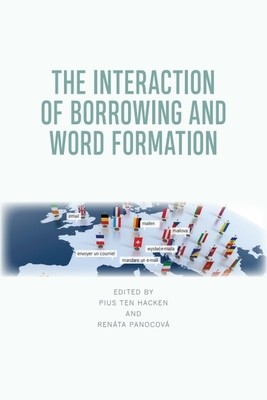
- We will send in 10–14 business days.
- Publisher: Edinburgh University Press
- ISBN-10: 1474448208
- ISBN-13: 9781474448208
- Format: 15.6 x 23.4 x 1.9 cm, hardcover
- Language: English
- SAVE -10% with code: EXTRA
The Interaction of Borrowing and Word Formation (e-book) (used book) | bookbook.eu
Reviews
Description
Drawing on detailed case studies across a range of languages, including English, German, Dutch, Italian, Portuguese, Polish, Czech, Russian, Lithuanian and Greek, this book examines the different factors that determine the outcome of the interaction between borrowing and word formation. Historically, borrowing has largely been studied from etymological and lexicographical perspectives and word formation has been included in morphology. However, this book focuses on their mutual influence and interaction. Bringing together a range of contributors, each chapter illustrates how borrowing and word formation are in competition as alternative naming processes, while also showing how they can influence each other. The case studies are framed by an introduction that describes the general background and a conclusion that summarises the main findings.
EXTRA 10 % discount with code: EXTRA
The promotion ends in 7d.18:52:58
The discount code is valid when purchasing from 10 €. Discounts do not stack.
- Publisher: Edinburgh University Press
- ISBN-10: 1474448208
- ISBN-13: 9781474448208
- Format: 15.6 x 23.4 x 1.9 cm, hardcover
- Language: English English
Drawing on detailed case studies across a range of languages, including English, German, Dutch, Italian, Portuguese, Polish, Czech, Russian, Lithuanian and Greek, this book examines the different factors that determine the outcome of the interaction between borrowing and word formation. Historically, borrowing has largely been studied from etymological and lexicographical perspectives and word formation has been included in morphology. However, this book focuses on their mutual influence and interaction. Bringing together a range of contributors, each chapter illustrates how borrowing and word formation are in competition as alternative naming processes, while also showing how they can influence each other. The case studies are framed by an introduction that describes the general background and a conclusion that summarises the main findings.


Reviews